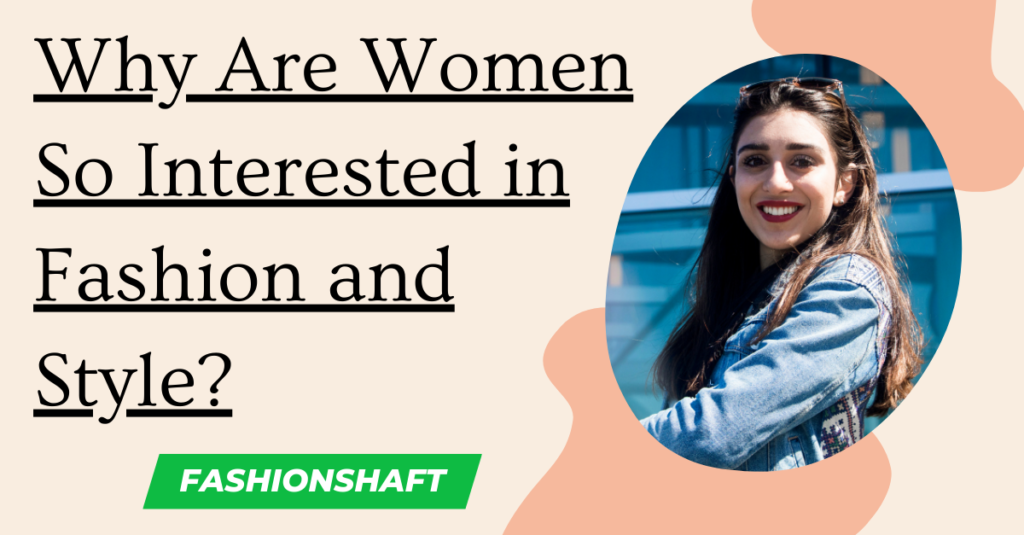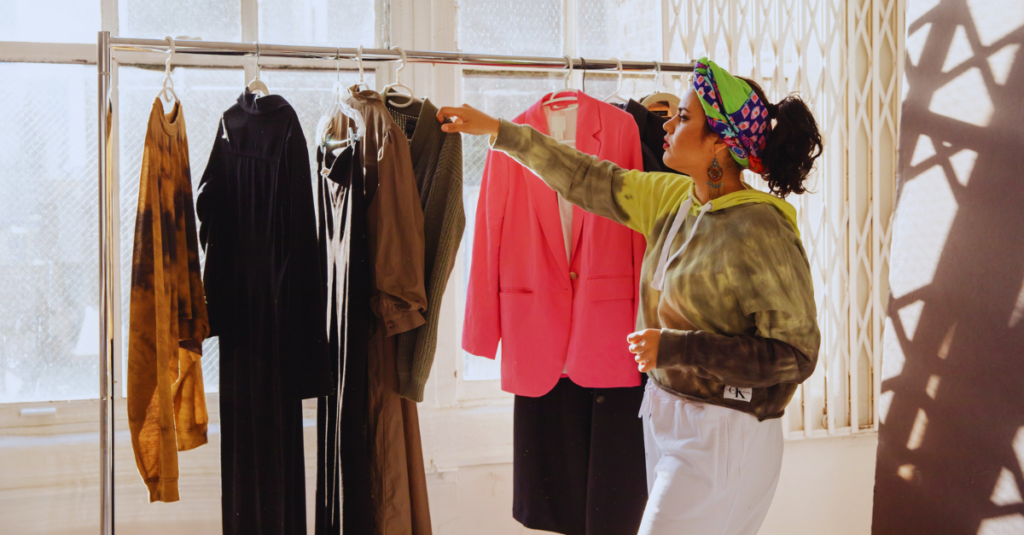Why Are Women So Interested in Fashion and Style?
Introduction
Fashion and style have long been integral aspects of human culture, serving not only as functional clothing but also as powerful tools for self-expression and identity. In today’s diverse and dynamic world, women’s passion for fashion seems to be an enduring phenomenon that transcends borders and cultures. From haute couture runways to the latest streetwear trends, women play a significant role in shaping and participating in the fashion industry. This raises the question: What drives this deep and enduring interest? In this article, we will explore the multifaceted reasons behind women’s fascination with fashion and style, shedding light on the historical, psychological, sociological, and empowerment factors that contribute to this phenomenon.
Why Are Women So Interested in Fashion and Style?
The Evolution of Fashion and Its Role in Women’s Lives
To understand women’s profound interest in fashion, we must first recognize the historical significance of clothing as a form of self-expression and identity. Throughout the ages, fashion has evolved as society changed, reflecting cultural norms, economic status, and gender roles. For women, especially, fashion has offered a canvas to communicate their individuality, tastes, and emotions.
From the corsets of the Victorian era that shaped women’s silhouettes to the liberating flapper dresses of the 1920s, every era brought new styles that empowered women to express themselves. Today, modern fashion continues to evolve, providing women with a diverse array of options to embrace their uniqueness and celebrate their personalities.
Societal and Cultural Influences
The media and advertising play a significant role in shaping perceptions of beauty and fashion. Women are often bombarded with images of the “ideal” body and must-have fashion items. These messages can influence women’s interest in fashion, leading them to seek acceptance and validation through their appearance. Moreover, celebrity culture also plays a part, as fashion choices of famous individuals are constantly scrutinized and imitated.
Societal expectations and norms related to women’s appearance are deeply ingrained. Women are often judged based on their clothing choices, leading to a desire to conform to societal standards of beauty. However, it’s essential to recognize that these influences can vary significantly based on cultural contexts, with different societies and regions having distinct fashion norms and values.
Fashion as a Means of Creativity and Artistic Expression
Fashion provides a unique outlet for creativity and artistic expression, and women, like anyone else, have an inherent desire to explore and experiment. For many women, curating a personal style is akin to creating wearable art. From mixing patterns and textures to accessorizing with jewelry and shoes, every outfit tells a story about the individual.
Fashion also plays a crucial role in enhancing women’s self-esteem and empowerment. When women feel good about their appearance, it can positively impact their confidence, allowing them to tackle challenges with a sense of assurance. Fashion becomes a tool for self-affirmation and can even boost their overall well-being.
The Psychology of Women’s Fashion Choices
The psychology behind women’s interest in fashion is a complex interplay of various factors. The desire for self-expression, belonging, and self-presentation all contribute to their fashion choices. Clothing choices can be influenced by mood, environment, and personal experiences.
Additionally, societal and peer pressures can shape how women perceive fashion and its role in their lives. For instance, during adolescence, young women may be particularly attuned to their appearance as they seek to establish their identity and fit in with their peers.
Sociological Perspectives: Fashion in Social Interactions
Fashion also plays a crucial role in social interactions and identity formation. In social settings, clothing choices often serve as signals to communicate social status, values, and group affiliations. This is especially prevalent in subcultures where distinct fashion styles act as markers of belonging.
Moreover, fashion can act as a form of nonverbal communication, influencing how others perceive and interact with women. Understanding the social significance of fashion empowers women to use it strategically to project the image they desire and navigate social situations effectively.
Fashion and Professional Life
In the professional world, fashion choices can impact how women are perceived by colleagues, clients, and superiors. The “dress for success” mantra emphasizes the importance of presenting a polished and professional image. However, navigating the fine line between expressing personal style and adhering to workplace dress codes can be a challenge for women.
Conversely, breaking the mold and introducing creativity into professional attire can demonstrate confidence and a willingness to challenge norms. The rise of influential women in various industries has also contributed to shifting perceptions of what constitutes appropriate professional attire.
Breaking Stereotypes and Challenging Gender Norms
Women have been historically associated with interests in fashion and beauty, perpetuating stereotypes that undermine their other qualities and talents. However, it’s crucial to recognize that women are multi-dimensional individuals with diverse interests and abilities. The fashion industry is gradually embracing diversity and inclusivity, promoting body positivity and challenging traditional beauty standards.
Furthermore, the rise of gender-neutral and inclusive fashion is challenging traditional gender norms. As women embrace fashion that defies traditional categorizations, they are expressing their individuality and pushing boundaries.
The Influence of the Fashion Industry
The fashion industry itself plays a significant role in women’s interest in fashion. Trends set by designers and influencers can create a sense of urgency to stay up-to-date and relevant. However, the rise of fast fashion has also led to a culture of constant consumption, often at the expense of ethical and sustainable practices.
As women become more aware of the environmental and social impacts of the fashion industry, there is a growing movement towards conscious consumerism. Ethical fashion brands that promote sustainability and transparency are gaining traction, reflecting women’s desire to align their fashion choices with their values.
Cultural and Global Perspectives
Women’s interest in fashion is a global phenomenon with regional and cultural variations. Different cultures place unique emphasis on specific clothing styles, colors, and fabrics. What may be considered fashionable in one part of the world may not resonate with another culture’s sensibilities.
Globalization and the accessibility of fashion through the internet have led to the cross-pollination of styles and ideas. Women worldwide can now draw inspiration from diverse fashion trends, resulting in a melting pot of styles that transcend geographical boundaries.
Conclusion (Why Are Women So Interested in Fashion and Style?)
The enduring interest of women in fashion and style can be attributed to a combination of historical significance, societal influences, creative expression, and the desire for empowerment. Fashion serves as a powerful tool for women to communicate their identity, project confidence, and challenge stereotypes.
While societal pressures and the fashion industry’s influence can sometimes be overwhelming, women have the agency to curate their unique style that reflects their individuality and values. As we celebrate the diversity and complexity of women’s fashion interests, it’s crucial to promote body positivity, inclusivity, and ethical choices in fashion, empowering women to embrace their authentic selves confidently. By recognizing and understanding the multifaceted reasons behind women’s interest in fashion and style, we can move towards a more inclusive and empowering future for fashion enthusiasts everywhere.

My name is Rohit Vagh and I’m a content writer specializing in fashion and lifestyle. I have three years of experience in this field and have written various articles. My writing style is creative and engaging, and I strive to create content that resonates with my readers. I have a deep passion for fashion and am constantly researching the latest trends and styles to make sure my readers are up to date. I’m excited to continue my career in blogging, and I’m always looking for new opportunities in the fashion and lifestyle space.





